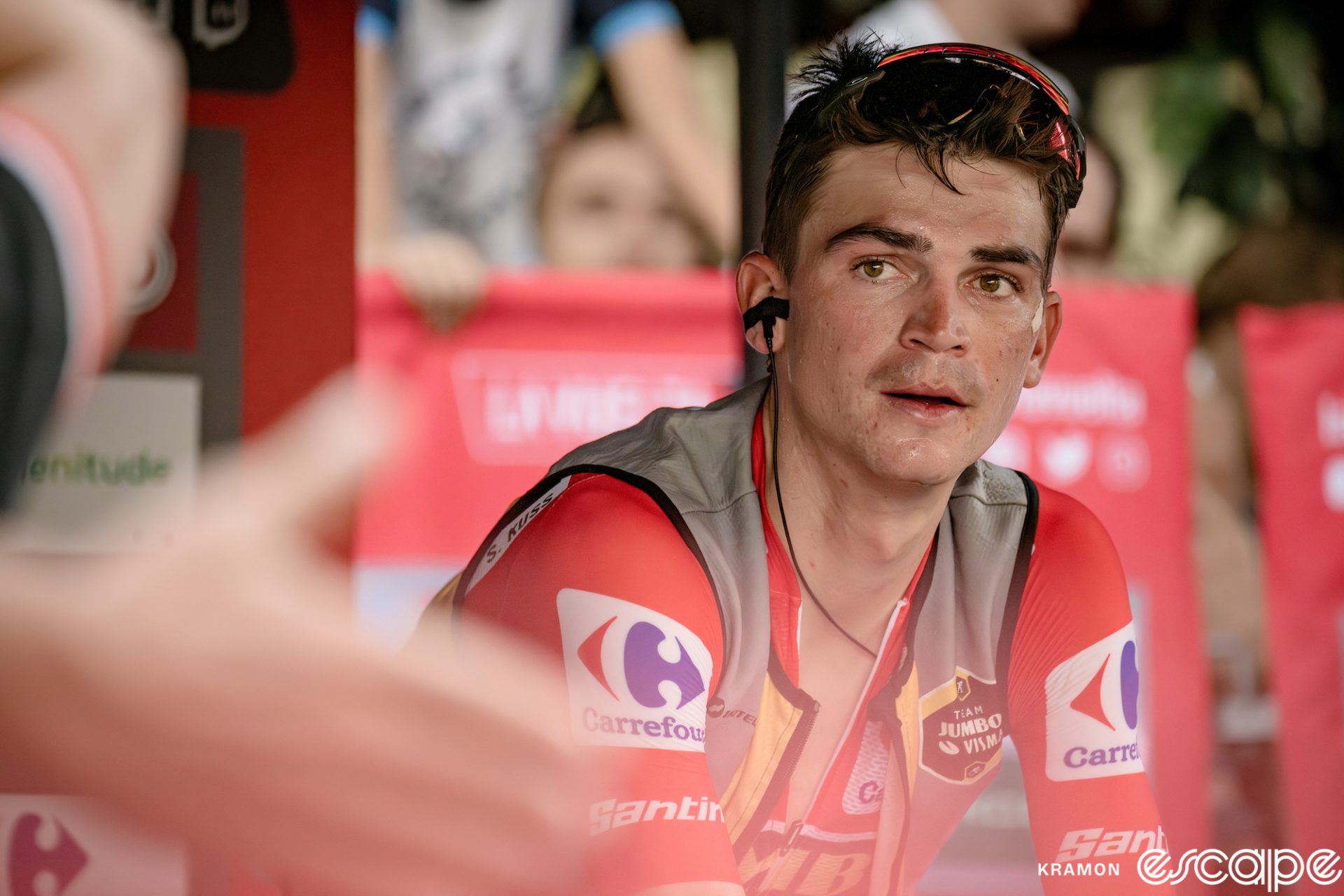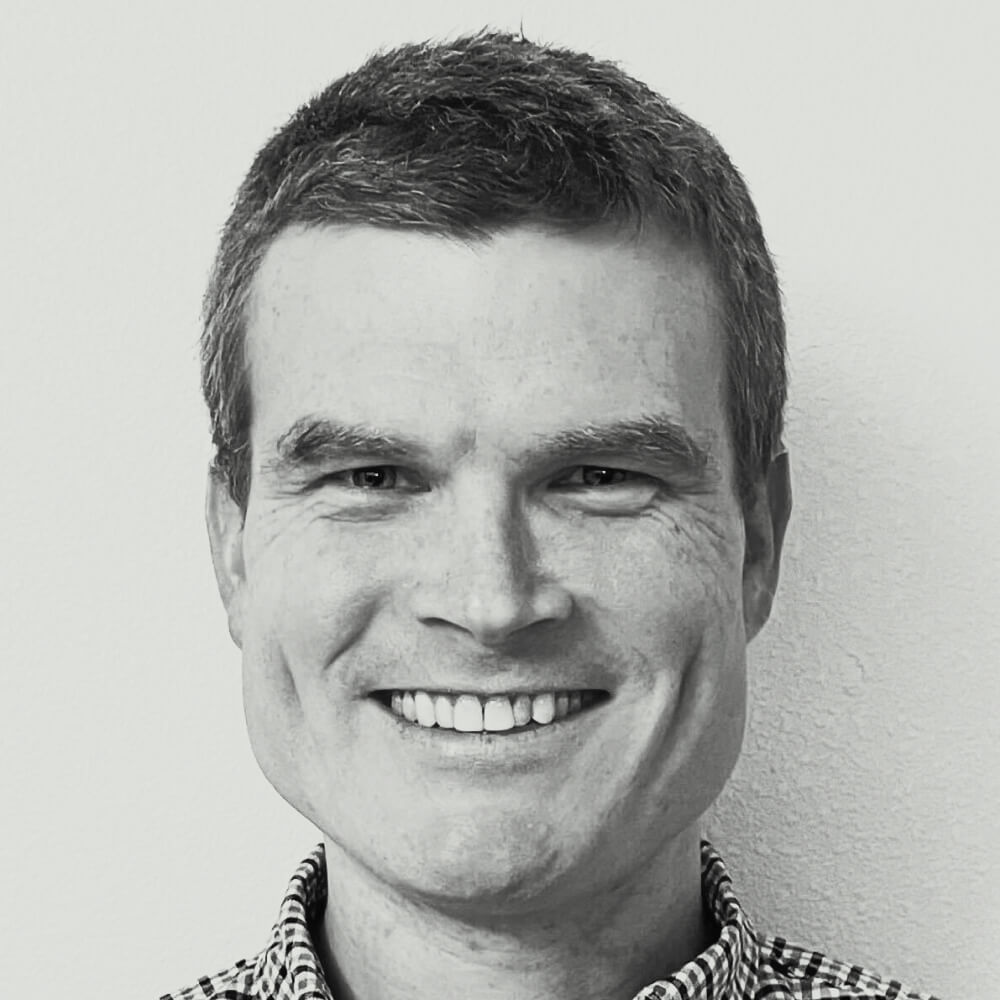Three months after he stormed to his first career Grand Tour win atop an all Jumbo-Visma podium at the Vuelta a España, Sepp Kuss has reflected on the experience – and the “weird dynamic” of “hoping that another team brings back your teammate” – in an appearance on the Geraint Thomas Cycling Club podcast.
Kuss, whose Vuelta victory was the first Grand Tour win for an American since Chris Horner’s a decade ago, finished the race ahead of Jonas Vingegaard and Primož Roglič, but only after a dramatic run of stages in the mountains in which it wasn’t clear whether his Jumbo teammates would overhaul him for the red jersey.
On the podcast, Thomas and his podcast co-host Tom Fordyce first asked Kuss about his Giro d’Italia and Tour de France experiences before turning to the Vuelta, where Kuss took time in an early breakaway and was in the red jersey after eight stages of racing. With two Grand Tour-winning teammates behind him in the overall standings, Kuss was in uncharted territory.
“Initially, I didn’t feel right saying, ‘I want this, this, this,’ because I also realized that I was in that position due to our team tactics, which is fair,” he said. “I wasn’t going to put the winner of the Giro and the winner of the Tour in their place, not even knowing whether I was going to have the legs to do it in the end. I always had the confidence in myself but I didn’t want to lay down the law like that.”
Kuss continued to lead the race through the second week and into the third. Then, on stage 16, Vingegaard put in an attack on the second-category climb to Bejes.
“He asked in the radio, ‘Can I attack?’ and I said, ‘Sure, someone has to chase so it’s not bad,'” Kuss said of that day. But what was good for the team almost backfired on Kuss himself. “Then when it was a total standstill and UAE had all these guys and nobody was pulling. I was like, ‘Oh shit. OK, well, I want Jonas to win but I hope somebody actually pulls behind, otherwise what do we do? I’m not going to chase him back.'”
Kuss found himself in the uncomfortable position of standing by as the reigning Tour champion edged closer and closer to his lead. “That was a weird dynamic too, just hoping that another team brings back your teammate,” he said with a laugh. “I say that in a good way, I wanted him to win that stage, there’s nothing wrong with that, but that was a weird standstill.”
Vingegaard went on to win the stage and move much closer to Kuss in the overall standings, setting up even more drama the next day on the iconic Alto de l’Angliru, where Vingegaard and Roglič both dropped Kuss, their teammate in red.
“Before that moment, I felt so good. I thought, ‘I could win this stage, this stage is the one that I wanted to win this whole Vuelta and I feel super good,'” Kuss said of being left behind on the Angliru. “Then with 1 k to go, they were going faster and faster and I’m on the limit. When I realized I was getting dropped, I was like, ‘OK well, that’s the end of the road for me. This is what we agreed to and I didn’t picture it happening like this, but I guess this is what it’s going to be.'”
As it turns out, that was not the end of the road for Kuss, who limited his losses enough to keep red. He explained that following the chaos on the Angliru, Jumbo riders and management then met to decide how to proceed, with “everybody” at that point “OK” with backing him as the leader.
Looking back with the benefit of hindsight – and the knowledge that he had won the race in the end – Kuss was able to discuss the drama in a lighthearted mood, laughing at various points as he relayed the story of his victory and the unusual circumstances along the way. Nonetheless, he also fielded a difficult question about the perception some viewers might have about whether he only won because of his teammates’ decisions.
“That discussion is also valid, but at least when I think about that, what about all the times that I towed them around, or the year that I saved Primož on the Angliru?” Kuss posited. “If cycling is this thing where it’s like a caste system, where you are a domestique and you are that no matter what, then that’s one way to look at it, but then you say in turn, whoever has the leader’s jersey is the leader no matter what.”
Considering that Kuss was still playing the loyal teammate role even when in the race lead at the Vuelta as he watched Vingegaard go up the road, it is impossible to say for certain how things would have played out if Kuss had reacted differently to that move. That said, he asserted that he was, in fact, good enough to win the race in the end.
“Whatever way you spin it you have to play within the realms of the team and who is strongest too, which, I do think I was the strongest in that situation,” Kuss said. However his win was perceived, the drama certainly struck a chord across cycling fandom, and Kuss said it was “moving” to experience the support of the many viewers pulling for him to take the win.
Following the discussion of his busy 2023 campaign, Kuss looked forward to 2024 and weighing in on what his next season might entail.
“I think for me it would be best to just do the Tour, I really like the route, and of course go back to the Vuelta and be the defending champion and soak in that experience,” he said. “That would be pretty cool.”
What did you think of this story?

